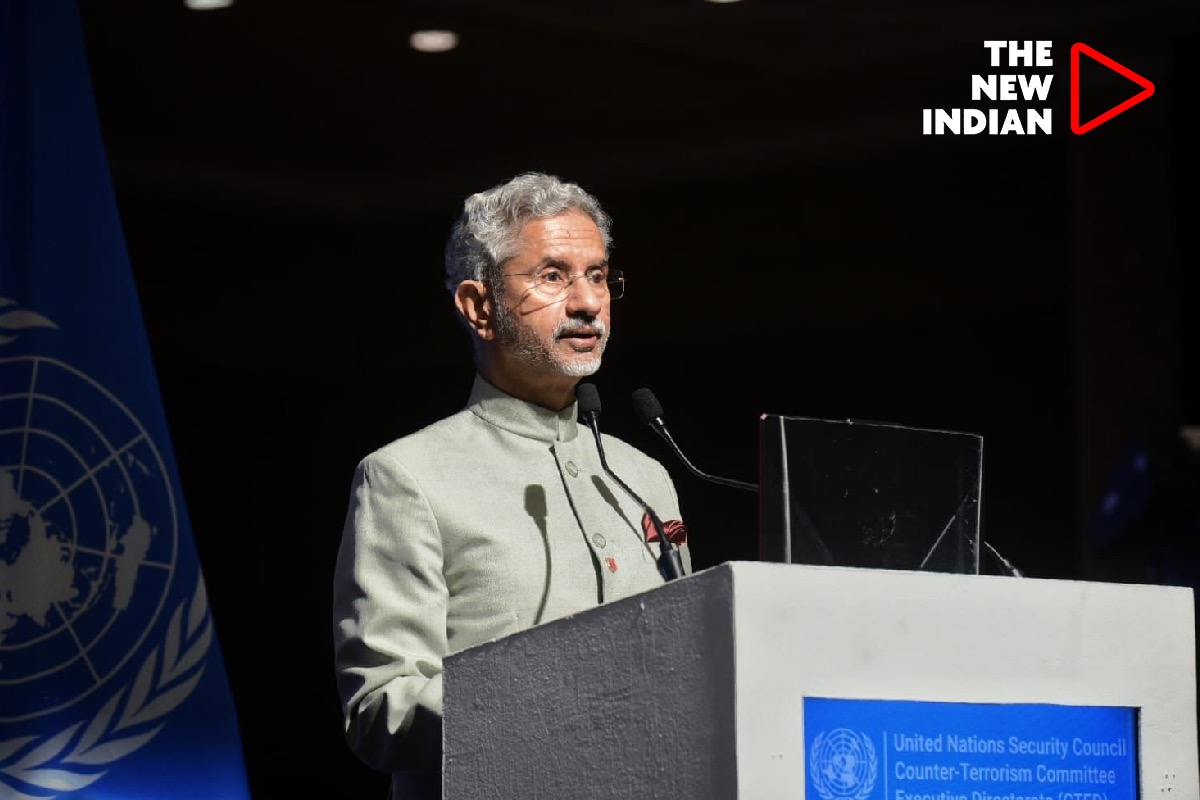

Internet and social media have turned into potent instruments in the “toolkit of terrorist groups” for spreading propaganda, radicalisation and conspiracy theories for destabilising societies, external affairs minister Dr S Jaishankar told a key anti-terror meeting of the UN in New Delhi on Saturday.
Speaking at the second session of the United Nations Security Council’s (UNSC) Counter-Terrorism Committee, Dr Jaishankar said that terrorists and their sympathisers have misused cutting-edge technologies like blockchain, virtual private networks (VPN), and encrypted messaging services such as WhatsApp to carry out terrorist attacks.
He also said terrorists and their “ideological fellow-travellers” misuse the ethos of open societies to attack the very basic ideals of these societies.
“In recent years, terrorist groups, their ideological fellow-travellers, particularly in open and liberal societies and ‘lone wolf’ attackers have significantly enhanced their capabilities by gaining access to these technologies. They use technology and money, and most importantly, the ethos of open societies, to attack freedom, tolerance and progress.
He further said: “The new and emerging technologies – from virtual private networks, and encrypted messaging services to blockchain and virtual currencies – offer a very promising future for a wide array of economic and social benefits for humankind. However, there is a flip side, especially where terrorism is concerned.”
Without naming neighbouring Pakistan, the EAM said the UNSC has put in place architecture around counter-terror sanction regime in the past two decades, which has been “very effective in putting those countries on notice that had turned terrorism into a state-funded enterprise”.
He called the menace of terrorism “one of the gravest threats to humanity”.
EAM Dr Jaishankar also announced that India will contribute half a million dollars to the UN Trust Fund for Counter Terrorism this year to “augment the efforts in providing capacity-building support to member states in preventing and countering the threat of terrorism.”
In a first, India hosted a special two-day meeting of the UNSC committee on Friday and Saturday. While the first session was convened in Mumbai, the second meeting was held in New Delhi on Saturday.
On the sidelines of the meeting, the minister met his Gabon counterpart Michael Moussa-Adamo and Ghana’s Shirley A Botchwey. Gabon is the president of the UNSC for the month of October.
“This meeting is also a product of the fact that counter-terrorism has become one of the top priorities during our ongoing tenure in the Security Council,” Jaishankar said while delivering the keynote address at the plenary session.
Apart from Ghana and Gabon, the foreign ministers UK, deputy foreign ministers of Albania and UAE as well as senior UN officials addressed the plenary session.
The meeting has been convened to address the challenges of the governments and regulators from the emergence and availability of high technology used by non-state actors as well as terrorist outfits. Saturday’s session was focused on information & communication technologies, new payment technologies and fundraising methods and unmanned aircraft systems, including drones.
In the first session held in Mumbai, India made a presentation on Pakistan’s open support to terrorists involved in the 26/11 Mumbai attacks. India also played an audio clip of the most wanted terrorist Sajid Mir, who was in constant touch with and gave instructions to the attackers in 2008.
In addition, Indian officials also highlighted the free pass by Pakistan to Lashkar-e-Taiba chief Hafiz Saeed, Sajid Mir and Major Iqbal of Pakistan’s Inter-Services Intelligence (ISI) in its presentation.